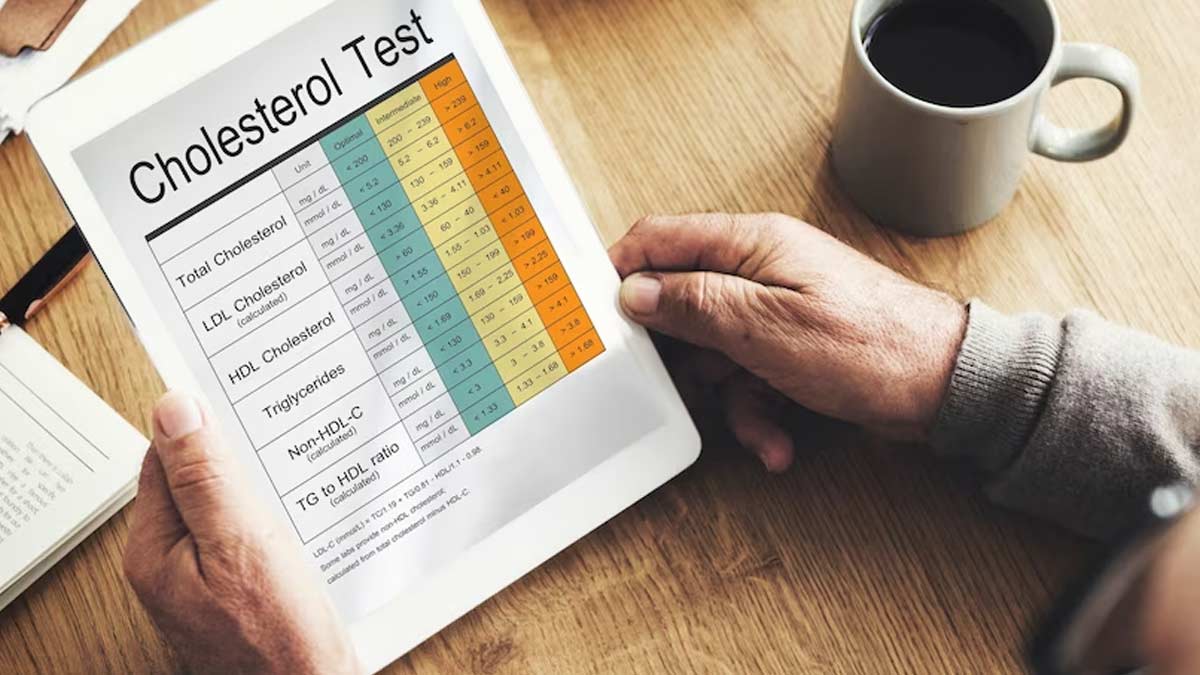
The word ‘cholesterol’ is not well accepted by most people, especially those who already have a high risk of heart disease. But as opposed to the bad name it has earned, cholesterol is actually necessary for the body to build healthy cells and hormones. It only becomes a problem when you have elevated levels of the waxy substance, which can lead to fatty deposits or plaque in the blood vessels, restricting easy blood flow through the arteries.
Table of Content:-
Ideally, your total cholesterol should be below 200 mg/dL. But if it reaches or exceeds 240 mg/dL, it is important to consult a healthcare professional. Lifestyle modifications and medications may help control cholesterol levels, but the effect may not be immediate. Speaking with the OnlyMyHealth team, Dr Sukriti Bhalla, Consultant, Cardiology, Aakash Healthcare, New Delhi, shared strategies to manage cholesterol and discussed how long it could take to show results.
Also Read: THIS Cholesterol Symptom Could Strike At Night: Other Warning Signs To Note
Bad Vs. Good Cholesterol

High cholesterol is a common contributor to heart diseases like heart attack and stroke. In fact, it is responsible for a third of ischaemic heart disease around the world, with an estimated 20.6 lakh deaths and 2.97 crore Disability-Adjusted Life Years (DALYS), according to the World Health Organization (WHO).
However, it is important to know that there are two main types of cholesterol: Low-Density Lipoprotein (LDL), known as the ‘bad’ cholesterol, and High-Density Lipoprotein (HDL), or the ‘good’ cholesterol.
While too much LDL cholesterol can lead to deposits along the walls of blood vessels, increasing the risk of heart attack and stroke, HDL cholesterol removes excess deposits, transporting them back to the liver for elimination.
Higher levels of HDL are beneficial in protecting against heart diseases like heart attack and stroke, said Dr Bhalla, adding that triglycerides, another type of fat, can accumulate in your body, which, coupled with low HDL cholesterol, heightens the risk of heart disease and diabetes.
Cholesterol Management Strategies

According to Dr Bhalla, different people may benefit from different cholesterol management strategies.
“For some people, achieving an acceptable cholesterol level just requires making dietary and lifestyle changes. For others, medications may be prescribed to decrease cholesterol. In cases of high cholesterol, doctors often prescribe statins as a primary medication to reduce cholesterol production and decrease inflammation in blood vessels,” she said. As far as lifestyle changes are concerned, here’s a list of habits to adopt:
- Increase the intake of plant-based foods, which are rich in vitamins and devoid of cholesterol
- Add more fibre to your diet as it not only supports digestive health but also helps prevent the absorption of cholesterol
- Limit the intake of trans and saturated fats, such as fried and baked goods
- Quit tobacco and smoking
- Indulge in regular aerobic exercise as it contributes to the lowering of LDL cholesterol
Also Read: Can Eggs Increase Cholesterol Levels? How Many Eggs A Day Is Actually Safe
How Long Does It Take To Lower Cholesterol?

When it comes to how long it takes to lower cholesterol, there is no definite time period.
Responding to the question, Dr Bhalla shared, “Dietary and lifestyle adjustments play a crucial role in achieving lasting changes in cholesterol levels. While the effects may not be as rapid as medications, individuals can observe a drop in cholesterol levels within weeks or months by following a specific diet and lifestyle plan.”
According to Medical News Today, the duration can vary from 6 to 8 weeks, but it can also take longer, usually about three months.
Conclusion
It is important to get your cholesterol checked every four to six years, starting at age 20, according to the American Heart Association (AHA). The more frequently you get tested, the higher the chance of an early diagnosis and effective management. In severe cases of high cholesterol, doctors may advise taking medications like statins. However, lifestyle modifications and healthy dietary habits are key to managing the condition.
Also watch this video
Read Next
Right Vs Left Heart Failure: Expert Explains These Heart Failure And Lists Treatment Therapies
How we keep this article up to date:
We work with experts and keep a close eye on the latest in health and wellness. Whenever there is a new research or helpful information, we update our articles with accurate and useful advice.
Current Version